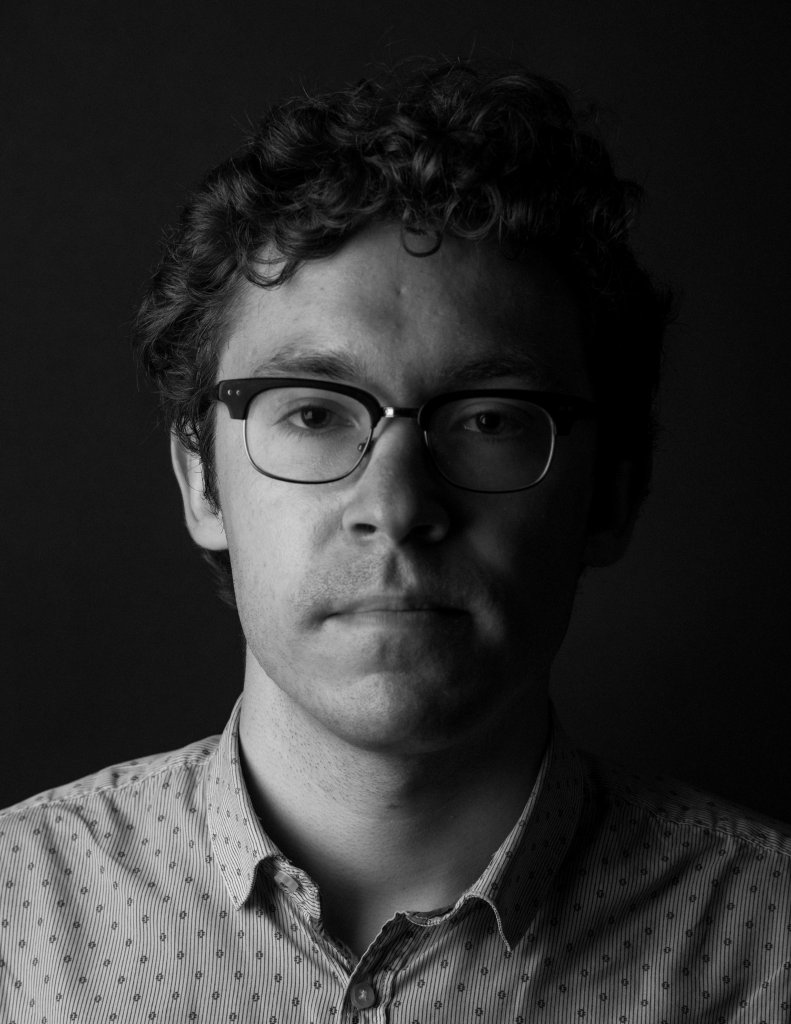Artis Ostups is a researcher at the Institute of Literature, Folklore and Art of the University of Latvia, and a doctoral student at the University of Tartu, where he is also a member of the Narrative, Culture, Cognition research group. He previously studied philosophy at the University of Latvia and Charles University in Prague. His dissertation examines the heterogeneity of historical time in contemporary Latvian fiction.
Artis Ostups

University of Tartu
Institute of Cultural Research
Ülikooli 18
50090 Tartu
Estonia
artis.ostups[at]gmail.com
Heterogenity of Historical Time in the Contemporary Latvian Novel: A Comparative Perspective
Since the fall of communism, the experience of time in society and culture has changed significantly. Instead of linear and homogeneous time, we live in a fragmented, layered, and plural temporality. This is also evident in contemporary novels, which depict the present as incorporating the past. The doctoral thesis focuses on the contemporary Latvian novel as a paradigmatic case of multitemporality and compares it to other works of Eastern European literature.
MORE ABOUT THE PROJECT- “The Screaming Thing: A Material Ecocritical Exploration of Trauma in Aleksandrs Pelēcis’s Poems,” Respectus Philologicus 45,50 (2024): 71-83, https://doi.org/10.15388/RESPECTUS.2024.45(50).6.
- “Progress, Trauma and Narrative Possibilities in Nora Ikstena’s Soviet Milk,” Slavonica 28,2 (2023): 99-111, https://doi.org/10.1080/13617427.2024.2342605.
- “Tagadnes mirāža: vēsture un melanholija,” in Tagadnības skārums: veltījumkrājums profesorei Mārai Rubenei, ed. Igors Gubenko. Rīga: LU FSI [forthcoming in 2023]. (in Latvian)
- “Metonymy, Presence, and the Ethics of Imagination in Postmemorial Writing: Andra Manfelde’s Zemnīcas bērni and Katja Petrowskaja’s Maybe Esther,” Interdisciplinary Literary Studies 25,1 (2023): 124–141, https://muse.jhu.edu/pub/2/article/882365.
- “Secondary Witnessing and Narrative Erasure in Inga Gaile’s The Beautiful Ones,” Colloquia 50 (2022): 13-28, https://doi.org/10.51554/Coll.22.50.02.
- “Metarefleksivitāte un modernisms Montas Kromas dzejā,” in Monta Kroma: dzeja un refleksija, ed. Artis Ostups, Jānis Ozoliņš and Kārlis Vērdiņš. Rīga: LU LFMI, 2022, 180–198. (in Latvian)
- “‘The Scar Will Always Be There’: The Post-Soviet Melancholia in Gundega Repše’s Conjuring Iron,” Interlitteraria 25,2 (2020): 408–421, https://doi.org/10.12697/IL.2020.25.2.12.
- “No melanholijas līdz sērām: padomju okupācijas trauma Gundegas Repšes romānā ‘Dzelzs apvārdošana’ un Noras Ikstenas romānā ‘Mātes piens’,” Letonica 40 (2019): 114–128, http://lulfmi.lv/page/view?link=LETONICA-Nr-40-%282019%29. (in Latvian)
- “Rēgs, fotogrāfija un atbildība Paula Bankovska romānā ’18’,” Aktuālas problēmas literatūras un kultūras pētniecībā 24 (2019): 133–144. (in Latvian)
- “Modernisma ietekmes mūsdienu dzejā,” in Latviešu literatūra 2007–2015, ed. Kārlis Vērdiņš. Rīga: LU LFMI, 2018, 159–187. (in Latvian)
- “Valtera Benjamina un Teodora V. Adorno lirikas teorija: valoda starp reprezentāciju un neizsakāmo,” Letonica 34 (2016): 69–80, http://lulfmi.lv/Letonica-Nr34-2016. (in Latvian)
- “Fluchtpunkte – Ostseeraumnarrative,” panel discussion and readings at the Tage baltischer Literatur, Literaturhaus Zürich in cooperation with the IRTG Baltic Peripeties, Zurich, February 25, 2023.
- Project presentation at the IRTG Festive Anniversary Baltic Sea Region Narratives, Alfried Krupp Wissenschaftskolleg, Greifswald, April 6, 2022.
- “Pagātnes klātbūtne Ināras Vērzemnieks darbā ‘Starp dzīvajiem un mirušajiem’,” (in Latvian) conference Aktuālas problēmas literatūras un kultūras pētniecībā, Liepāja University, March 24-25, 2022.
- “Metonymy, Presence and Ethical Imagination in Postmemorial Writing: Andra Manfelde’s ‘Children of the Bunker‘ and Katja Petrowskaja’s ‘maybe Esther‘,” conference Regīna Ezera and Eastern European Literature, Institute of Literature, Folklore and Art of the University of Latvia, National Library of Latvia, December 3-4, 2021.
- “The Ethics of Unnarrated: Collective Trauma in Gundega Repše’s Novel ‘Conjuring Iron‘,” 35th International Conference on Narrative, International Society for the Study of Narrative, New Orleans, March 5-7, 2020.
- “The Demands of History: Conceptualizing the Post-Revolutionary Melancholy of Contemporary Latvian Fiction,” 13th International Conference of the Estonian Association of Comparative Literature (EACL), Department of Literature and Theatrical Studies of the University of Tartu, September 29 – October 1, 2019.
- “’Unfillable Void’: Photography and Melancholy in Pauls Bankovskis’s Novel ’18‘,” 3rd Memory, Melancholy and Nostalgia International Interdisciplinary Conference, University of Gdansk, December 3-4, 2018.
University studies and degrees
- Since 2019
- Editor-in-chief of the interdisciplinary scholarly journal Letonica.
- Since 2018
- Doctor of Philosophy, University of Tartu.
- Since 2017
- Researcher at the Institute of Literature, Folklore and Art of the University of Latvia.
- 2011–2013
- Master of Philosophy, University of Latvia.
- 2008-2011
- Bachelor of Philosophy, University of Latvia.
Teaching
- Since 2021
- Creative Writing, Art Academy of Latvia, Riga.
- Since 2021
- Critical Theory, Art Academy of Latvia, Riga.